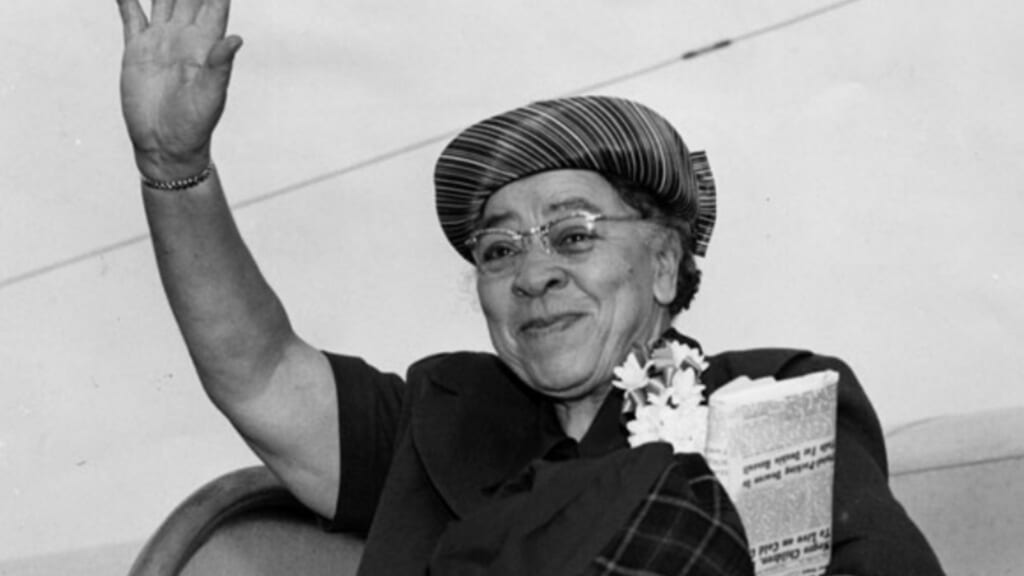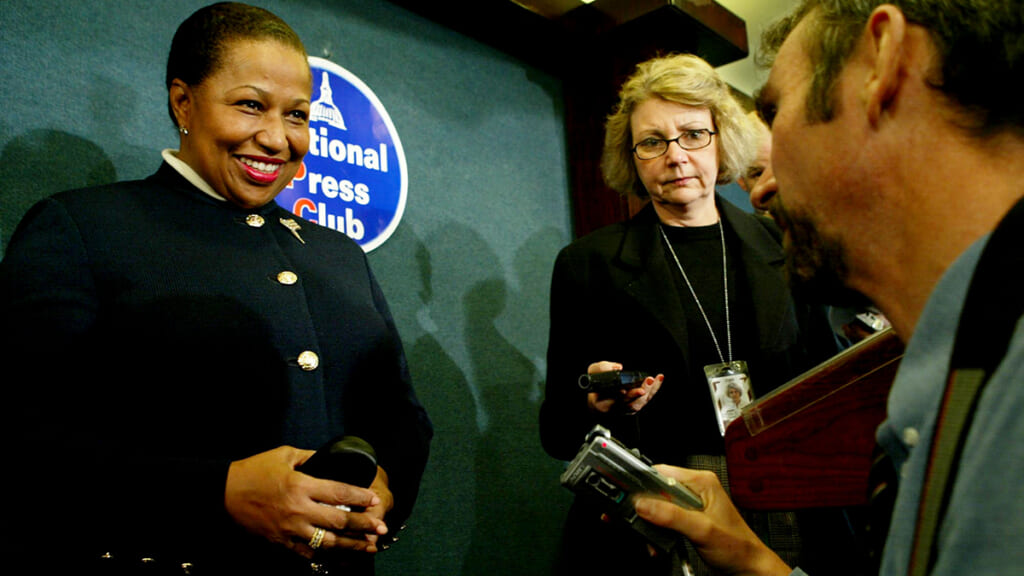First Black woman US senator on Kamala Harris’ historic nomination
OPINION: Carol Moseley Braun says that Sen. Kamala Harris' achievement follows a long line of pioneering Black women who demanded to be heard
We live in interesting and challenging times. Not only is the world experiencing unprecedented disease with COVID-19, but the planet itself is shuddering with climate change, and our assumptions about economic and social relationships are all in flux.
In the midst of all this, Democratic presidential nominee Joe Biden has given us a ray of sunshine and of hope in selecting Senator Kamala Harris to be his running mate in the presidential election of 2020.
Senator Harris creates a mold that our country and the world has not seen before. She is not only a woman of color, a daughter of immigrants, a highly-educated law enforcement official, a distinguished and active member of the United States Senate, but part of an interracial family who is a member of the “sandwich generation,” with both parents and children looking to her for support.
Read More: Kamala Harris says ‘there is no vaccine for racism’ in rousing DNC speech
Her selection has given hope and inspiration to millions of young women that society is ready to finally receive their contributions.

Harris follows in a long line of Black women demanding to be heard. This year, 2020, marks the 100th anniversary of the ratification of the Nineteenth Amendment to the U.S. Constitution, which gave women the right to vote. In spite of the glorious words of our founding charters, women had to wait until Aug. 18, 1920, to be able to participate in our democracy as citizens.
The story is now famous that it was a single vote in the Tennessee legislature that passed the Nineteenth Amendment for the country, culminating a long process of ratification. The back story about the surprise vote that passed the suffrage amendment tells a lot about this country.
Henry Burn switched his vote to support votes for women because he had received a letter from his mother telling him to do so. Her motivation, however, points to the bizarre confluence of race and gender that has always characterized American society.
Many of the White women who agitated for women’s suffrage had also been abolitionists, but Burn’s mother, a college-educated White woman, was offended that Black men could vote, and she could not. Black women had to wait an additional four decades to enjoy the electoral franchise.
Even before the Voting Rights Act of 1965 was made law, theoretically opening the ballot box to all Americans, Black women challenged the barriers to their participation by running for office.
Read More: The Voting Rights Act is still under siege 55 years later
In 1928, Minnie Buckingham Harper became the first Black woman state legislator. She had been appointed to the post. The first Black woman to run for and get elected to a state legislature was Crystal Bird Fauset, in 1938, who served for 2 years in the Pennsylvania House of Representatives. A decade later, in 1952, Cora Mae Brown was elected to the Michigan State Senate.

Also in 1952, Charlotta Bass was a vice-presidential candidate on a third party ticket, the Progressive Party. Not until 1962 was a second Black woman elected to a state senate seat, Verda Freeman Welcome. Then in 1966, Yvonne Braithwaite Burke was elected to the California State Assembly. Two years later, in 1968, Shirley Chisholm from New York was elected as the first Black woman to the U.S. House of Representatives.
Read More: Charlotta Bass was first Black woman to run for VP
In 1972, Chisholm broke ground again, running for president of the United States. By then, she had been joined in the Congress by Burke and Barbara Jordan of Texas. Jordan was the first Black person elected from Texas. They were joined by Cardiss Collins of Illinois in 1973. I was elected from Illinois to the United States Senate in 1992, the first Black woman in the history of this country to do so.

Now, in 2020 there are 22 Black women in the U.S. House of Representatives, and Sen. Harris in the Senate (who along with Sen. Booker and Sen Scott (R) constitute the entirety of the Senate’s black caucus).
There are 6 Black women in statewide executive offices, 72 state senators, 232 state representatives. Senator Harris is breaking new ground, and should she and Joe Biden be elected, will be the highest-ranking Black woman in the history of the United States.
A century ago, Anna Julia Cooper, a Black woman suffragist and abolitionist, coined the phrase “when and where I enter, in the quiet undisputed dignity of my womanhood, without violence and without suing or special patronage, then and there the whole Negro race enters with me.”
Senator Harris carries with her the hopes and aspirations of multiple constituencies. Black women, Black people, Indian people, an entire community of immigrants, white people who want to end the systemic racism that has characterized American politics from the beginning. Those who want to see the American dream realized will see their aspirations carried by her.
Read More: Joe Biden, Kamala Harris talk ‘modern family’ values in 1st joint interview

It will be daunting, but she shows every indication of being up for it, and ready for the job. Now we just have to do the hard work of winning the election.
Access to the ballot remains an issue, as both political parties attempt to control elections. In addition to the usual suspects like gerrymandering, this time the president and his administration are even attempting to shut down post offices in a not-so oblique attempt to interfere with the election and keep citizens from voting (Section 8 of Article 1 of the Constitution requires Congress to establish post offices).
In another environment, this alone would be shocking, but in the extraordinary times we live in, it’s another assault on the norms and assumptions about how our country operates.
2016 was a shocker. Even though Hillary Clinton won the popular vote, she did not become president. This was a function of another Constitutional rule: Presidents are chosen by the electoral college, not the people as a whole. (Section 1 of Article II). That must not happen again.
Joe Biden and Kamala Harris have sufficient popular support, and if the votes for them materialize, I have little doubt that they are able to win Electoral College support. When they do, we will have made great progress in making our republic live up to its highest ideals of democracy.
Alexander Hamilton said it best when he observed that “the sacred rights of mankind … are written, as with a sunbeam in the whole volume of human nature by the hand of the divinity itself, and can never be erased or obscured by mortal power.”
Every voter holds that mortal power in his or her hands. It is up to us to get their votes cast and counted for Joe Biden and Kamala Harris so as to reclaim the soul of America.
Carol Moseley Braun is a former U.S. Ambassador and the first Black woman elected to the United States Senate.
Have you subscribed to theGrio’s podcast “Dear Culture”? Download our newest episodes now!
